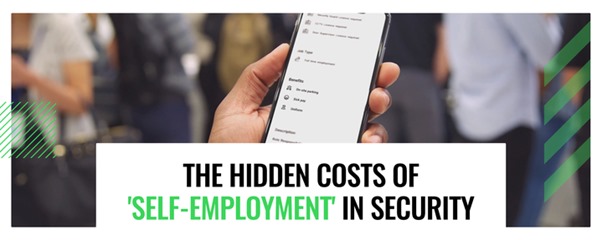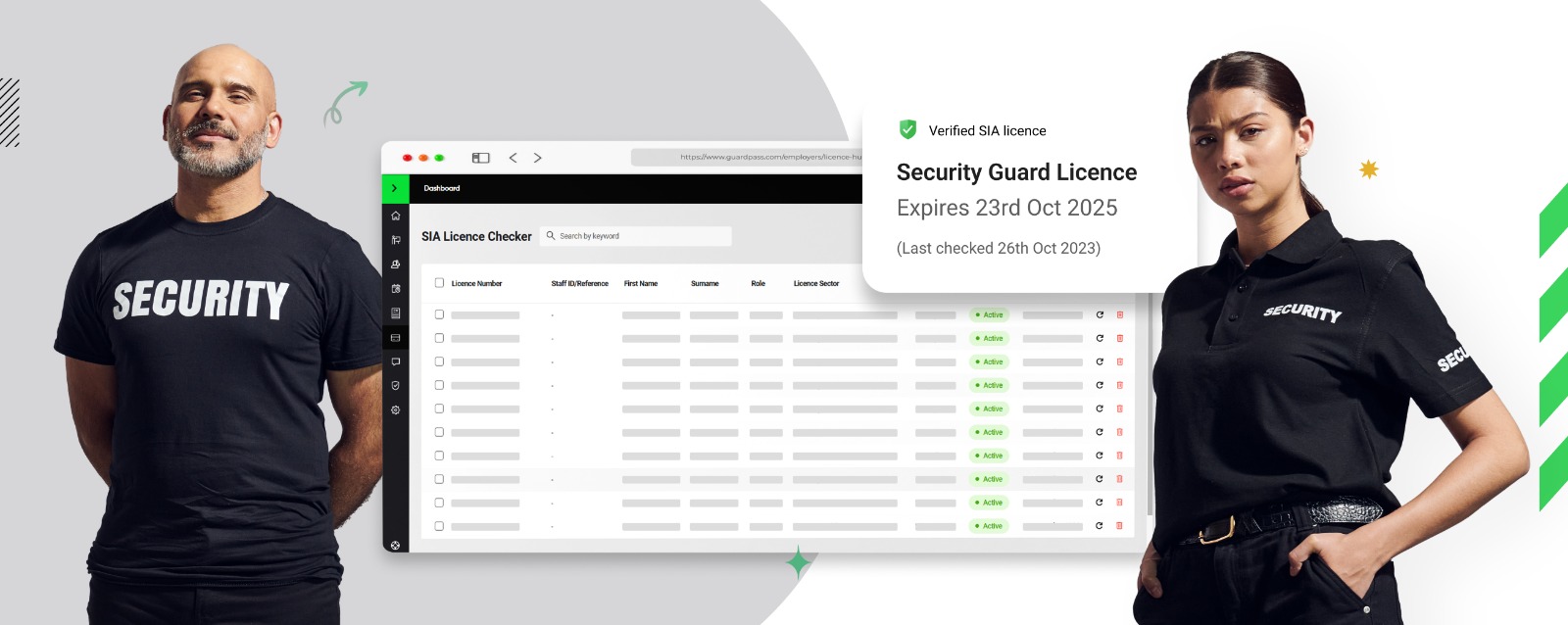Self-employment is on the rise in the security industry. More and more people are choosing to go freelance, attracted by the chance to control their own schedules and pick their own gigs.
But while being your own boss brings a certain freedom, it also has its downsides, like unpredictable workloads and missing out on the perks that come with regular employment. This changing scene offers both new opportunities and fresh challenges for security pros going it alone.
The Double-Edged Sword of Self-Employment
For many security professionals, the appeal of self-employment lies in the flexibility it offers—being your own boss, choosing when and where you work.

However, this independence often comes with unpredictability in work and income, akin to the changing moods of a crowd at a football match.
Challenges of Inconsistent Work:
- Financial Instability: Gaps between contracts can make budgeting a nightmare, leading to financial stress and uncertainty.
- Seasonal Fluctuations: Security work can be seasonal, with dry spells, especially during colder months when fewer events take place.
The Hidden Costs of Going Solo
While self-employment offers flexibility, it often lacks the benefits that come with regular employment. Here are some stark realities:
In previous years, only 16% of the self-employed contributed to a private pension plan, compared to 64% of employees (source).
Unlike their counterparts in permanent roles, self-employed security personnel don’t enjoy the safety net of employer-provided health insurance, pension schemes, or even paid holidays.
If you’re guarding a venue and twist an ankle, the time off to recover hits your wallet directly—not just in lost income but in medical expenses, too.
This lack of benefits extends to professional development as well. Permanent employees often have access to training and certifications paid for by their employers, an essential aspect of career advancement in the security field that remains a personal expense for the self-employed.
For Employers: Attracting Top Talent with Ethical Practices
For security employers, the rise of self-employment within the industry signals a need to rethink how work is structured and supported. Here’s how you can attract and retain top talent:
- Hybrid Employment Models: Consider offering a mix of fixed and flexible contracts to provide more stability and attract a broader range of candidates.|
- Subsidising Training Costs: Support continuous professional development by subsidising training costs, which not only helps your employees but also enhances the quality of service, maintaining high industry standards.
- Offering Competitive Benefits: Providing health insurance, paid leave, and pension contributions can make your offers more attractive compared to typical gig work. This is crucial in maintaining a high-quality security workforce that ensures public safety.
The Role of Employers in Enhancing Industry Standards
Employers have a crucial role in setting and maintaining industry standards. By ensuring fair employment practices and offering benefits, employers can mitigate the risks associated with self-employment in the security industry.
Fair compensation and stable employment contracts can help maintain a workforce that is not only skilled and compliant with industry standards but also motivated and less likely to seek opportunities elsewhere.
A Call for a More Supportive Framework
The evolving landscape of self-employment in the security sector calls for innovative solutions from both platforms like GuardPass and traditional employers.
By fostering an environment that values flexibility while providing substantial support, we can ensure a robust, reliable, and skilled security workforce.
Step into a community that values your skills and flexibility. Join us at GuardPass, where we connect you with top firms ready to offer quality, flexible roles alongside the stability of traditional benefits. Let’s redefine security employment together!
Estimated reading time: 5 minutes



